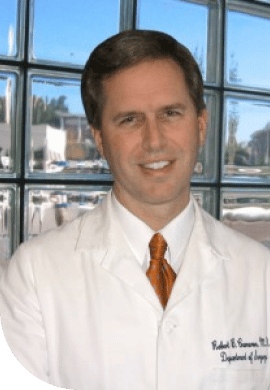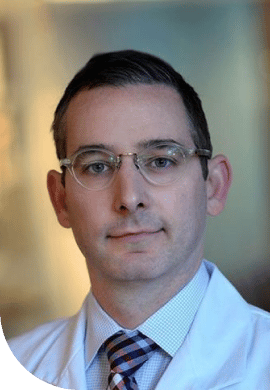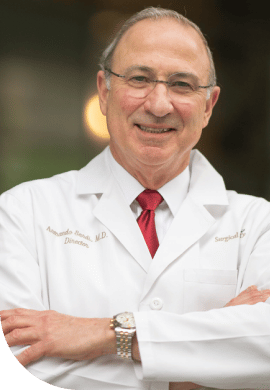Mesothelioma Doctors
Mesothelioma is a rare and aggressive type of cancer. Mesothelioma doctors are familiar with the progression of the cancer, prognoses, research, and clinical trials. It’s critical for patients to find a doctor that specializes in mesothelioma to ensure the best and most effective care.
Home » National Mesothelioma Law Firm » Mesothelioma Cancer » Mesothelioma Treatment » Mesothelioma Doctors
Doctors that specialize in mesothelioma offer patients hope, thanks to their familiarity with cutting-edge research and their participation in clinical trials. If you or your loved one has recently been diagnosed with mesothelioma, finding a mesothelioma specialist is critical to your prognosis.
Do mesothelioma patients need doctors specializing in mesothelioma?
Mesothelioma is an aggressive cancer that behaves differently from other cancers. It impacts the lining around the internal organs, such as the lungs. This lining is a thin, oily, see-through material that lacks a blood supply. This makes the cancer more difficult to treat. Doctors specializing in mesothelioma have learned how to address the specific challenges associated with this dire condition.
How to Select a Mesothelioma Doctor
If you have recently been diagnosed with mesothelioma, the selection of a doctor is an important decision. The best mesothelioma specialists share several characteristics in common:
- Participation in clinical trials
- Leading investigative roles in clinical trials
- A personalized approach
- A focus on quality of life
- Extensive training and experience in diagnosing and treating mesothelioma
- Novel therapies
- Involvement in mesothelioma advocacy and research organizations
- Leadership positions in mesothelioma programs
- Membership in a specialty program
- Published papers pertaining to mesothelioma
- Use of modern therapeutic techniques and multimodal therapy for mesothelioma

Top Mesothelioma Doctors
Top mesothelioma doctors have devoted many years to investigating effective mesothelioma treatment approaches. They actively participate in clinical trials and offer novel treatment options that provide mesothelioma patients with the best chances of survival.

Robert B. Cameron, M.D., FACS
Robert B. Cameron, M.D., FACS, is one of North America’s leading experts on the treatment of pleural mesothelioma and the co-founder and former director of the Mesothelioma Applied Research Foundation.
He serves as Scientific Advisor for the Pacific Mesothelioma Center. He has been treating mesothelioma patients for over 20 years at the University of California in Los Angeles and as chief of thoracic surgery at the West Los Angeles Veterans Administration Medical Center, where he runs the mesothelioma program.
Dr. Cameron is the innovator of the lung-sparing pleurectomy/decortication surgical procedure for mesothelioma and has performed this procedure on hundreds of patients, along with other novel procedures including cryoablation, to attack the cancer cells after the initial surgery. His approach to mesothelioma is to treat it as a chronic condition rather than try to cure it.
Dr. Cameron’s approach extends the lives of his patients drastically while also improving their quality of life. He sees patients through the VA and through his Los Angeles medical clinic.

Daniel H. Sterman, M.D.
Daniel H. Sterman, M.D., is an interventional pulmonology specialist, which is a hybrid of pulmonary medicine and thoracic surgery. He treats mesothelioma patients at NYU Langone Pulmonary & Critical Care Associates and Perlmutter Cancer Center.
He actively participates in novel research and clinical trials and has spent the last 18 years studying gene therapy and immunotherapy to treat people with pleural mesothelioma and improve and prolong the quality of their lives.

Bryan Burt, M.D., FACS
Bryan Burt, M.D., FACS, is chief of the division of thoracic surgery at Baylor College of Medicine with a special interest in treating patients with mesothelioma. Dr. Burt also offers minimally invasive robotic surgery and prides himself on consistently providing the highest quality of patient care. He is an experienced scientist and a surgical innovator.
He was recently awarded a $2.5 million grant by the National Cancer Institute for a mesothelioma research study. The grant covers the first five years of a seven-year study entitled, “Proteomic Determinants of Response to Checkpoint Blockade in Malignant Pleural Mesothelioma.”

Robert Taylor Ripley, M.D.
Robert Taylor Ripley, M.D., is the director of the Mesothelioma Treatment Center at Baylor St. Luke’s Medical Center in Houston. He is also a member of the Mesothelioma Applied Research Foundation, where he was elected to the board in 2019. He has authored several respected publications and has focused on mesothelioma for the past ten years.
Dr. Ripley specializes in innovative surgical approaches, including minimally invasive robotic thoracic surgery. He served as an associate professor at the National Cancer Institute and underwent extensive mesothelioma training by world-renowned surgeons from MSKCC.

Armando Sardi, M.D.
Armando Sardi, M.D., is the medical director at the Institute for Cancer Care at Mercy Hospital in Baltimore. He specializes in surgical oncology and has a special interest in abdominal cancers.
Dr. Sardi leads a team of mesothelioma doctors who are experts in the treatment of peritoneal mesothelioma, providing cutting-edge treatments including cytoreductive surgery and hyperthermic intraperitoneal chemotherapy (HIPEC). The team actively participates in scientific mesothelioma research.

Anne S. Tsao, M.D.
Anne S. Tsao, M.D., is a professor of medical oncology at the University of Texas. She specializes in thoracic medical oncology at Anderson Cancer Center, where she directs the mesothelioma program. She is the principal investigator in many clinical trials and focuses on individualized cancer treatment.
Dr. Tsao is highly active in national and international oncology societies and serves as chair of the Mesothelioma Applied Research Foundation and on the SWOG Mesothelioma Steering Committee.
What is the life expectancy if you have mesothelioma?
The average life expectancy for patients diagnosed with Stage 1 mesothelioma who do not seek treatment is 10 months, compared to 21 months for patients who receive treatment. However, life expectancy is very individual, and no patient should assume their case will be “average.” In some cases, mesothelioma doctors have been able to extend life expectancy significantly while also improving patient quality of life.
Is mesothelioma curable?
Mesothelioma is not curable, but mesothelioma doctors have had some success improving quality of life and even extending patients’ lives.
Is there any hope for mesothelioma?
The numerous clinical studies that are underway and the innovative approaches of mesothelioma specialists have drastically increased treatment options for mesothelioma patients.
Julie’s Story
Julie was 35 years old when she was diagnosed with peritoneal mesothelioma in 2006 and was told by her physician that her life expectancy was 6 to 12 months. She feared her three-year-old daughter would not remember her. Her team of doctors utilized HIPEC surgery and intraperitoneal chemotherapy to treat her mesothelioma.
As of 2022, Julie has lived to see her daughter graduate and actively lobbies for an asbestos ban. Although she is not cured, her quality of life is good.
Terry’s Story
Terry was a real estate broker who had been exposed to asbestos as a young adult when he worked in the construction industry. He was diagnosed with pleural mesothelioma in 2010 and became a patient of Dr. Robert Cameron in Los Angeles.
Dr. Cameron performed the lung-sparing surgical procedure he had innovated. Five years later, Terry was seen delivering an inspirational speech at the Pacific Heart, Lung, and Blood Institute’s fourth-annual 5K Walk for Mesothelioma.
Emily’s Story
Emily was diagnosed with pleural mesothelioma when she was 63 years old. She underwent a lung-sparing surgery for mesothelioma with chemotherapy drugs delivered to her chest cavity. This was followed by six rounds of chemotherapy. Although she is not cured, seven years later, at the age of 70, she enjoys an active life.
Pragmatism and Hope
Clinical trials and inspirational results from novel treatments are encouraging and provide a sense of hope to mesothelioma patients. However, these stories are not typical. Realistically, the odds of survival after five years are poor. Dismissing this reality can bring about false hope, which is harmful.
A realistic outlook and hope need not be mutually exclusive. Balancing the reality of the prognosis with the possibilities of remission, life extension, or even a future cure is a healthy means of coping. One of the most significant sources of genuine hope is the dedication and innovation of mesothelioma doctors who refuse to give up until they find a cure.
By submitting this form, you agree to our terms & conditions. Please read the full disclaimer



